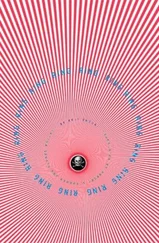Koji Suzuki - Dark Water
Здесь есть возможность читать онлайн «Koji Suzuki - Dark Water» — ознакомительный отрывок электронной книги совершенно бесплатно, а после прочтения отрывка купить полную версию. В некоторых случаях можно слушать аудио, скачать через торрент в формате fb2 и присутствует краткое содержание. Год выпуска: 2006, ISBN: 2006, Издательство: Vertical, Жанр: Ужасы и Мистика, на английском языке. Описание произведения, (предисловие) а так же отзывы посетителей доступны на портале библиотеки ЛибКат.
- Название:Dark Water
- Автор:
- Издательство:Vertical
- Жанр:
- Год:2006
- ISBN:9781932234220
- Рейтинг книги:3 / 5. Голосов: 1
-
Избранное:Добавить в избранное
- Отзывы:
-
Ваша оценка:
- 60
- 1
- 2
- 3
- 4
- 5
Dark Water: краткое содержание, описание и аннотация
Предлагаем к чтению аннотацию, описание, краткое содержание или предисловие (зависит от того, что написал сам автор книги «Dark Water»). Если вы не нашли необходимую информацию о книге — напишите в комментариях, мы постараемся отыскать её.
, which spawned the hit film and sequels. The first story in this collection has been adapted to film (
, Walter Salles), and another, “
” is currently in production with Dimension Films.
Naoki Prize Nominee (1996) Izumi Kyoka Prize Nominee (1996)
Dark Water — читать онлайн ознакомительный отрывок
Ниже представлен текст книги, разбитый по страницам. Система сохранения места последней прочитанной страницы, позволяет с удобством читать онлайн бесплатно книгу «Dark Water», без необходимости каждый раз заново искать на чём Вы остановились. Поставьте закладку, и сможете в любой момент перейти на страницу, на которой закончили чтение.
Интервал:
Закладка:
Although the doctor had urged Kayo to walk as a way to get better, she considered it such a chore that she kept putting it off. At length, the doctor had told her that she would become bed-ridden if she did not change her attitude. The words shook her into action, and one morning she decided to go for a stroll.
Dragging her bad leg heavily behind her, she nonetheless managed to walk as far as the tip of the cape. As she paused to catch her breath, she leaned over the promenade railings. She was utterly exhausted after having struggled all the way, forcing her left leg to come forward with the rest of her body. Ever since leaving the hospital, she had been distressed by her body’s constant refusal to cooperate with her intentions. She found her disability all the more irksome for once having been such an active person. Huffing and puffing, she sat atop the railings and took a wad of tissue paper from her pocket. After wiping her nose and eyes, she put the tissue paper back into her pocket, seemingly unwilling to throw the used paper away. She had repeatedly used the same wad of tissue in the same way during her walk. The railings gave way to a patch of rocky coast. The waves were breaking at her feet, and when the wind suddenly changed direction, it blew drops of spray onto her cheeks. Directly beneath the railings sprouted tufts of purplish grass. From each short, thick stem flourished a number of sprouts, giving the plant an air of great vitality. The onset of May would see the tips of these sprouts bursting forth in clusters of pale flowers. Yet it was still too early in the year for that. The plant was a species of angelica, known in Japanese as ashitaba. Kayo knew the name of the plant as well as its origin. Rendered in Chinese characters, ashitaba meant “tomorrow-leaf”. Indeed, this plant was named so because if its leaves were picked off today, they would sprout again by tomorrow. As she looked down at the Japanese angelica and pondered how it bore witness to the life force, she felt the urge to bend down and pluck off a leaf or two. She did so not out of some destructive impulse but out of the desire that the plant might share with her some of the life force that flowed within it.
As she looked carefully at the broken stems of the leaves she’d just plucked, she noticed a yellow liquid oozing from the veins. She brought the leaves up to her nose in an attempt to detect a aroma. She could not tell whether she smelled nothing because the plant was odourless or because her runny nose had dulled her olfactory sense.
… I’ll have to come back tomorrow and take a look.
She would have to return the next day to see whether the plant, true to its name, sprouted new leaves to replace the ones she’d just plucked. It was an ideal incentive for keeping at her daily early morning walks. She would pluck off the leaves here every day and return the next day to see if they had sprouted again.
Satisfied with her resolution, she looked up. It was then that she saw it. A small strip of light caught her eye. At first, she could not determine the origin of the light. It did not seem to be radiating directly from the sun as it began to peep above the horizon. It gave the impression of having flashed brilliantly for an instant, leaving a lingering image on her retina, before vanishing again.
She tried training her eye on the spot where she had seen the gleam vanish. Sure enough, there it was once again. From the same angle, the gleam caught her eye, only a little less intense than before. Over there in a hollow on the rocky shore, something seemed to be reflecting sunlight as it bobbed in a pool of seawater. At a certain angle, it sent a sharp gleam to catch Kayo’s eye.
Descending to the other side of the railings, she went to the side of the tidal pool. Careful to avoid getting wet, she squatted to take a closer look. She discovered that the source of the reflected light was a plastic bag containing a semi-transparent plastic case. It appeared as though the waves had washed it toward the rocks. The cylindrical case tossed in the water as if endowed with a will of its own. She thought she heard a voice nudging her to reach out and pick up the plastic case. Although she was not in the habit of picking up flotsam washed up onto the shore, she could not resist reaching out and picking up the case. She took the dripping bag between her fingers and held it up to the light of the rising sun. The case it held was securely sealed with rubber tape.
She could see in the case, in turn, a rolled-up piece of paper.
… A letter!
With a flash of intuition, she tore open the plastic bag and removed the case. The romantic fancy that occurred to her in that instant was that she had just received a letter that had been washed up after being carried a great distance. Conversely, it could be a child’s doing. She recalled having seen her elder son once attach fanciful letters to balloons on sports day at his school, releasing all the balloons into the air at the finale. It did occur to Kayo that it was quite possible that some child had done the same kind of thing by entrusting letters to the sea rather than the air.
Kayo decided not to read the contents of the case immediately, putting the case in her pocket instead and starting back home. She somehow felt that her leg was not dragging as heavily now as it had on her way out.
What she found in the case upon opening it was the neatly folded and rolled up copy of a map of the Chichibu Mountains and environs. She could see that there was some writing on the reverse side; before she knew it, she was reading it aloud. The first time, it failed to arouse the least emotion within her. It simply sounded like a phrase or two from some homily.
She noticed that the sender was a Fumihiko Sugiyama and that the message bore a date at the bottom, indicating that it had been written over a year ago. It did not seem too fanciful to conclude that Fumihiko Sugiyama had written the letter to his son Takehiko. Kayo was unable to imagine in what sort of circumstances Fumihiko had written the letter. She was also at a loss to understand the significance of the map of the Chichibu Mountains. Meanwhile, the address on the message said Ohta Ward, Tamagawa (River Tama) and even gave the house number. A look at a map revealed the neighbourhood to which the message was sent. The locale was roughly on the boundary between Tokyo and Kanagawa Prefecture, at the mouth of the River Tama.
The letter lay in a cupboard drawer for some time after. It had not been put away and forgotten, however. Whenever the fancy struck her, Kayo would take it out and pore over it. The more often she read the message, the more the lines gave off the aura of a powerful will. It occurred to her that this force could become all the greater if the letter were delivered to the intended recipient. She decided to see to it that the letter reached the address it bore. The idea came to her naturally: she’d deliver the letter in person rather than through the mail. During the fortnight or so that she had pored over the letter, she sensed that the letter had imparted strength to her. She felt compelled to seek out the address in order to confirm what she’d been given and to show her gratitude for it.
At the same time, she felt that this would be a new goal for her. It would involve, for one thing, making all the right train connections from Yokosuka to Tamagawa in Ohta Ward. This was not the kind of plan she could feel sure about implementing unless she could make it around Cape Kannon and back again without any trouble.
After this, her early morning routine was to rise before dawn, set out on her walk round the cape, pluck some leaves from the angelica plant and offer them to the little stone jizos, praying that her leg would get well again.
She thought that the delay in getting the letter to its destination was excusable. After all, the message had been written nearly a year and a half ago; surely it could wait a little longer. Yet it was conceivable that the family knew about the letter and was waiting anxiously for its delivery. The thought jolted Kayo out of her complacency and spurred her on in her efforts to rehabilitate her leg.
Читать дальшеИнтервал:
Закладка:
Похожие книги на «Dark Water»
Представляем Вашему вниманию похожие книги на «Dark Water» списком для выбора. Мы отобрали схожую по названию и смыслу литературу в надежде предоставить читателям больше вариантов отыскать новые, интересные, ещё непрочитанные произведения.
Обсуждение, отзывы о книге «Dark Water» и просто собственные мнения читателей. Оставьте ваши комментарии, напишите, что Вы думаете о произведении, его смысле или главных героях. Укажите что конкретно понравилось, а что нет, и почему Вы так считаете.












